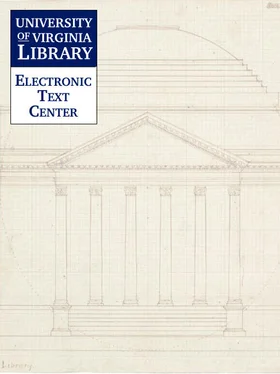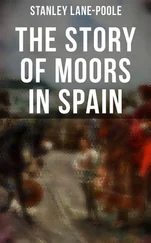Hendrik Loon - The Story of Mankind
Здесь есть возможность читать онлайн «Hendrik Loon - The Story of Mankind» весь текст электронной книги совершенно бесплатно (целиком полную версию без сокращений). В некоторых случаях можно слушать аудио, скачать через торрент в формате fb2 и присутствует краткое содержание. Год выпуска: 2000, Издательство: Electronic Text Center. University of Virginia Library., Жанр: Старинная литература, на английском языке. Описание произведения, (предисловие) а так же отзывы посетителей доступны на портале библиотеки ЛибКат.
- Название:The Story of Mankind
- Автор:
- Издательство:Electronic Text Center. University of Virginia Library.
- Жанр:
- Год:2000
- ISBN:нет данных
- Рейтинг книги:3 / 5. Голосов: 1
-
Избранное:Добавить в избранное
- Отзывы:
-
Ваша оценка:
- 60
- 1
- 2
- 3
- 4
- 5
The Story of Mankind: краткое содержание, описание и аннотация
Предлагаем к чтению аннотацию, описание, краткое содержание или предисловие (зависит от того, что написал сам автор книги «The Story of Mankind»). Если вы не нашли необходимую информацию о книге — напишите в комментариях, мы постараемся отыскать её.
The Story of Mankind — читать онлайн бесплатно полную книгу (весь текст) целиком
Ниже представлен текст книги, разбитый по страницам. Система сохранения места последней прочитанной страницы, позволяет с удобством читать онлайн бесплатно книгу «The Story of Mankind», без необходимости каждый раз заново искать на чём Вы остановились. Поставьте закладку, и сможете в любой момент перейти на страницу, на которой закончили чтение.
Интервал:
Закладка:
News in those days when there were only a few short railroads, travelled slowly, but when the success of the French and the Belgian revolutionists became known in Poland there was an immediate clash between the Poles and their Russian rulers which led to a year of terrible warfare and ended with a complete victory for the Russians who ``established order along the banks of the Vistula'' in the well-known Russian fashion Nicholas the first, who had succeeded his brother Alexander in 1825, firmly believed in the Divine Right of his own family, and the thousands of Polish refugees who had found shelter in western Europe bore witness to the fact that the principles of the Holy Alliance were still more than a hollow phrase in Holy Russia.
In Italy too there was a moment of unrest. Marie Louise Duchess of Parma and wife of the former Emperor Napoleon, whom she had deserted after the defeat of Waterloo, was driven away from her country, and in the Papal state the exasperated people tried to establish an independent Republic. But the armies of Austria marched to Rome and soon every thing was as of old. Metternich continued to reside at the Ball Platz, the home of the foreign minister of the Habsburg dynasty, the police spies returned to their job, and peace reigned supreme. Eighteen more years were to pass before a second and more successful attempt could be made to deliver Europe from the terrible inheritance of the Vienna Congress.
Again it was France, the revolutionary weather-cock of Europe, which gave the signal of revolt. Charles X had been succeeded by Louis Philippe, the son of that famous Duke of Orleans who had turned Jacobin, had voted for the death of his cousin the king, and had played a rôle during the early days of the revolution under the name of ``Philippe Egalité'' or ``Equality Philip.'' Eventually he had been killed when Robespierre tried to purge the nation of all ``traitors,'' (by which name he indicated those people who did not share his own views) and his son had been forced to run away from the revolutionary army. Young Louis Philippe thereupon had wandered far and wide. He had taught school in Switzerland and had spent a couple of years exploring the unknown ``far west'' of America. After the fall of Napoleon he had returned to Paris. He was much more intelligent than his Bourbon cousins. He was a simple man who went about in the public parks with a red cotton umbrella under his arm, followed by a brood of children like any good housefather. But France had outgrown the king business and Louis did not know this until the morning of the 24th of February, of the year 1848, when a crowd stormed the Tuilleries and drove his Majesty away and proclaimed the Republic.
When the news of this event reached Vienna, Metternich expressed the casual opinion that this was only a repetition of the year 1793 and that the Allies would once more be obliged to march upon Paris and make an end to this very unseemly democratic row. But two weeks later his own Austrian capital was in open revolt. Metternich escaped from the mob through the back door of his palace, and the Emperor Ferdinand was forced to give his subjects a constitution which embodied most of the revolutionary principles which his Prime Minister had tried to suppress for the last thirty-three years.
This time all Europe felt the shock. Hungary declared itself independent, and commenced a war against the Habsburgs under the leadership of Louis Kossuth. The unequal struggle lasted more than a year. It was finally suppressed by the armies of Tsar Nicholas who marched across the Carpathian mountains and made Hungary once more safe for autocracy. The Habsburgs thereupon established extraordinary court-martials and hanged the greater part of the Hungarian patriots whom they had not been able to defeat in open battle.
As for Italy, the island of Sicily declared itself independent from Naples and drove its Bourbon king away. In the Papal states the prime minister, Rossi, was murdered and the Pope was forced to flee. He returned the next year at the head of a French army which remained in Rome to protect His Holiness against his subjects until the year 1870. Then it was called back to defend France against the Prussians, and Rome became the capital of Italy. In the north, Milan and Venice rose against their Austrian masters. They were supported by king Albert of Sardinia, but a strong Austrian army under old Radetzky marched into the valley of the Po, defeated the Sardinians near Custozza and Novara and forced Albert to abdicate in favour of his son, Victor Emanuel, who a few years later was to be the first king of a united Italy.
In Germany the unrest of the year 1848 took the form of a great national demonstration in favour of political unity and a representative form of government. In Bavaria, the king who had wasted his time and money upon an Irish lady who posed as a Spanish dancer--(she was called Lola Montez and lies buried in New York's Potter's Field)--was driven away by the enraged students of the university. In Prussia, the king was forced to stand with uncovered head before the coffins of those who had been killed during the street fighting and to promise a constitutional form of government. And in March of the year 1849, a German parliament, consisting of 550 delegates from all parts of the country came together in Frankfort and proposed that king Frederick William of Prussia should be the Emperor of a United Germany.
Then, however, the tide began to turn. Incompetent Ferdinand had abdicated in favour of his nephew Francis Joseph. The well-drilled Austrian army had remained faithful to their war-lord. The hangman was given plenty of work and the Habsburgs, after the nature of that strangely cat-like family, once more landed upon their feet and rapidly strengthened their position as the masters of eastern and western Europe. They played the game of politics very adroitly and used the jealousies of the other German states to prevent the elevation of the Prussian king to the Imperial dignity. Their long training in the art of suffering defeat had taught them the value of patience. They knew how to wait. They bided their time and while the liberals, utterly untrained in practical politics, talked and talked and talked and got intoxicated by their own fine speeches, the Austrians quietly gathered their forces, dismissed the Parliament of Frankfort and re-established the old and impossible German confederation which the Congress of Vienna had wished upon an unsuspecting world.
But among the men who had attended this strange Parliament of unpractical enthusiasts, there was a Prussian country squire by the name of Bismarck, who had made good use of his eyes and ears. He had a deep contempt for oratory. He knew (what every man of action has always known) that nothing is ever accomplished by talk. In his own way he was a sincere patriot. He had been trained in the old school of diplomacy and he could outlie his opponents just as he could outwalk them and outdrink them and outride them.
Bismarck felt convinced that the loose confederation of little states must be changed into a strong united country if it would hold its own against the other European powers. Brought up amidst feudal ideas of loyalty, he decided that the house of Hohenzollern, of which he was the most faithful servant, should rule the new state, rather than the incompetent Habsburgs. For this purpose he must first get rid of the Austrian influence, and he began to make the necessary preparations for this painful operation.
Italy in the meantime had solved her own problem, and had rid herself of her hated Austrian master. The unity of Italy was the work of three men, Cavour, Mazzini and Garibaldi. Of these three, Cavour, the civil-engineer with the short-sighted eyes and the steel-rimmed glasses, played the part of the careful political pilot. Mazzini, who had spent most of his days in different European garrets, hiding from the Austrian police, was the public agitator, while Garibaldi, with his band of red-shirted rough-riders, appealed to the popular imagination.
Читать дальшеИнтервал:
Закладка:
Похожие книги на «The Story of Mankind»
Представляем Вашему вниманию похожие книги на «The Story of Mankind» списком для выбора. Мы отобрали схожую по названию и смыслу литературу в надежде предоставить читателям больше вариантов отыскать новые, интересные, ещё непрочитанные произведения.
Обсуждение, отзывы о книге «The Story of Mankind» и просто собственные мнения читателей. Оставьте ваши комментарии, напишите, что Вы думаете о произведении, его смысле или главных героях. Укажите что конкретно понравилось, а что нет, и почему Вы так считаете.












